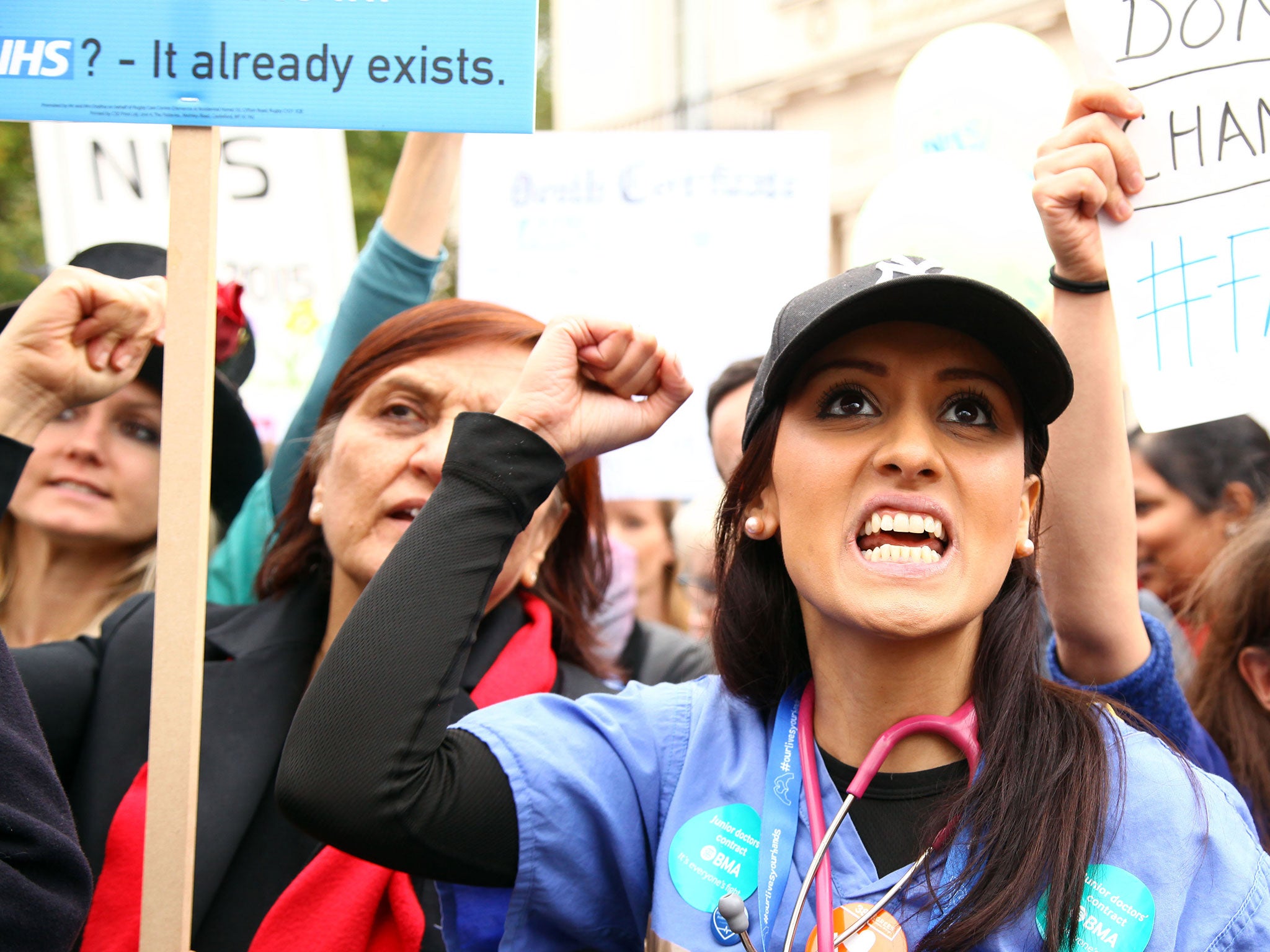Junior doctors' strike: The Government has gone too far in its fight with the BMA
We now know a controversial letter from a prominent doctor received input from civil servants

Your support helps us to tell the story
From reproductive rights to climate change to Big Tech, The Independent is on the ground when the story is developing. Whether it's investigating the financials of Elon Musk's pro-Trump PAC or producing our latest documentary, 'The A Word', which shines a light on the American women fighting for reproductive rights, we know how important it is to parse out the facts from the messaging.
At such a critical moment in US history, we need reporters on the ground. Your donation allows us to keep sending journalists to speak to both sides of the story.
The Independent is trusted by Americans across the entire political spectrum. And unlike many other quality news outlets, we choose not to lock Americans out of our reporting and analysis with paywalls. We believe quality journalism should be available to everyone, paid for by those who can afford it.
Your support makes all the difference.NHS managers will need to be careful as they deal with the junior doctors dispute, which will come to a head on Tuesday when strike action is expected. It is not the role of public servants to take sides in an industrial dispute, but they also have a duty to patients and an obligation to think about the worst that might happen when junior doctors withdraw their labour.
Sir Bruce Keogh, the Medical Director of NHS England, had every right to ask the BMA, after the terrorist attacks in Paris, whether junior doctors would be available to tend the injured if there were an emergency of that kind during the dispute. The answer could be summed up in two words: “Of course.”
This perfectly reasonable exchange need never have caused any trouble, had it been conducted in private. But as soon as the BMA received the letter, it was made public – as if Sir Bruce sought to use the horror in Paris to turn public opinion against the doctors’ action. A letter of protest, supported by more than 3,000 doctors, asked if he had been put up to writing it by the Health Secretary, Jeremy Hunt.
We now know that there was, indeed, collusion between Sir Bruce and the Department of Health during the drafting of the letter, from a series of emails obtained through a Freedom of Information request. In one, addressed to Sir Bruce, an unidentified civil servant wrote: “I have woven the points from my email earlier this morning into your letter.”
Later Sir Bruce is told to make his point about the risks of a terror attack during the strike more “hard-edged” and reminded that the issue will be pushed hard with the media on the day of the strike declaration.
Other emails refer to the “SoS”, or Secretary of State, making clear that Mr Hunt was involved. The fight between Mr Hunt and the BMA is not Sir Bruce’s fight. He should never have been dragged into it.
Join our commenting forum
Join thought-provoking conversations, follow other Independent readers and see their replies
Comments